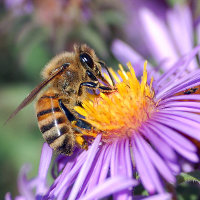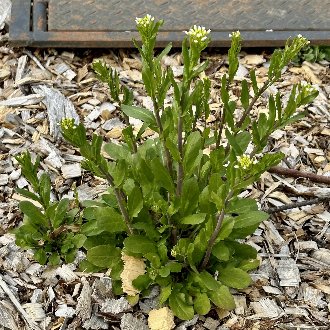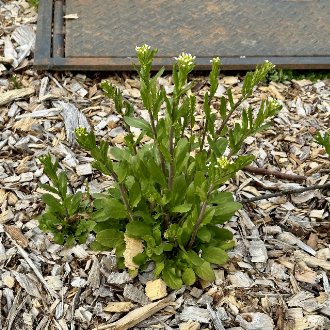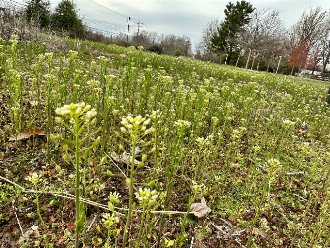Garlic Pennycress (Mummenhoffia alliacea (L.) Esmailbegi & Al-Shehbaz)
Also known as roadside pennycress; also classified as Thlaspi alliaceum L.
↑Range - Expand
| Legend | Color |
| Introduced or Not Present | |
| Introduced |
This map is based on our research. We have checked its accuracy to Level 3 ecoregions. Although this plant occurs somewhere in each of these regions, it may only occur in a small part of some or all of them.
The USDA and BONAP maps for this species show an unnatural county-level distribution, occurring in nearly all counties of Kentucky but few counties of neighboring states, which suggests a possible error in reporting. We have not yet investigated these discrepancies.
↑Habitat
The habitat preferences of this species are poorly understood; it is endangered in the wild in its native range, but has adapted to anthropogenic habitats where it often seems to thrive more than in the wild. In North America, garlic pennycress is mostly found in anthropogenic habitats, including roadsides, especially grassy shoulders along roads, fields, pastures, gardens, and miscellaneous waste ground. Among wild habitats, it is sometimes found on disturbed sites in floodplains.
It tolerates significant soil salinity and may benefit from road salt. Other than its tolerance of salinity we could not find any information on its preference for other aspects of soil.
This species is currently in the process of expanding its range and its populations are increasing; it may not yet have colonized all suitable habitats.
↑Life Cycle
Garlic pennycress is a winter annual or biennial.
↑Links & External Resources
• Thlaspi alliaceum (roadside pennycress) | USDA PLANTS Database (About This Site)
• Thlaspi alliaceum | Biota of North America Project (BONAP) (About This Site)
• Thlaspi alliaceum | NatureServe Explorer (About This Site)
• Thlaspi alliaceum | Flora of North America (About This Site)
• Thlaspi alliaceum | Missouri Plants (About This Site)
• Roadside Pennycress | Maryland Biodiversity Project (About This Site)





